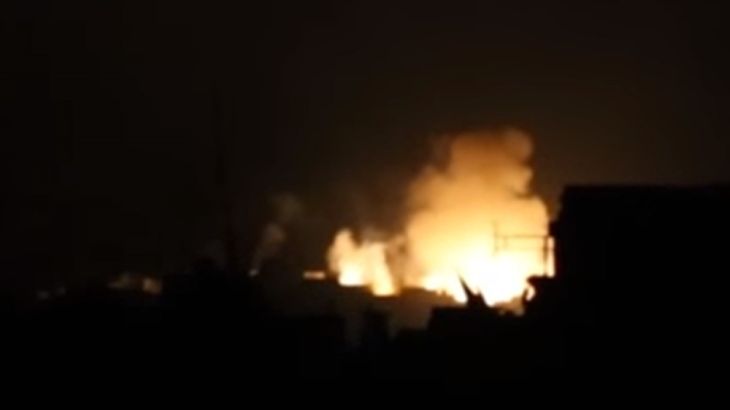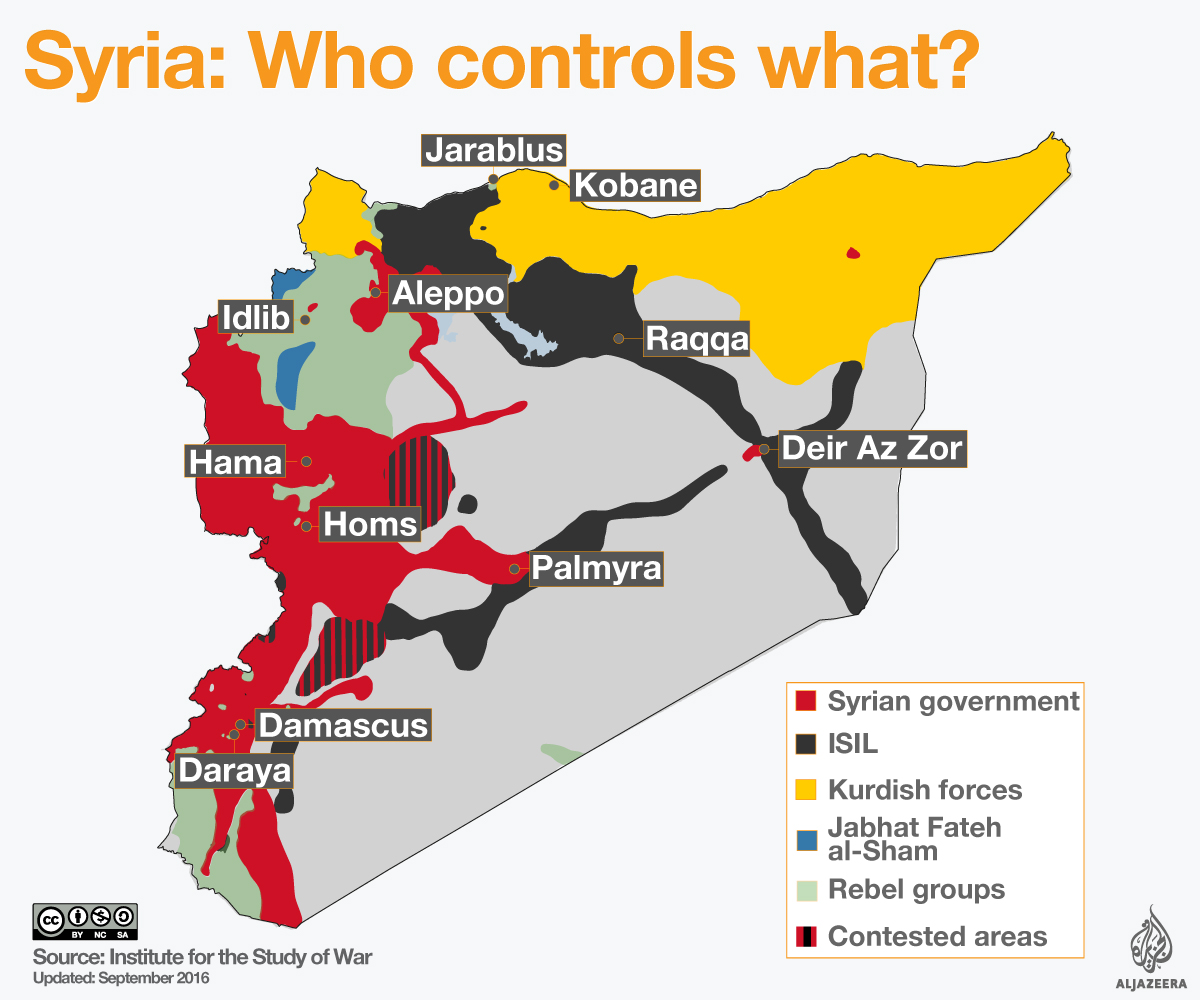Syria: Strikes pound Aleppo as UN resumes aid delivery
Rebels-held areas see “the most intense strikes in months” ahead of diplomatic efforts to revive collapsed ceasefire.

Intense air strikes have pounded rebel-held areas of Aleppo city and triggered major fires, according to a monitor and activists, as international powers with a stake in Syria’s civil war are meeting in New York amid efforts to revive a collapsed ceasefire.
The Syrian Observatory for Human Rights said on Thursday that 14 strikes hit the neighbourhoods of Bustan al-Qasr and Al-Kalasseh leading to “massive fires”, which killed seven people, including three women and three children.
Keep reading
list of 4 itemsThe Take: Thirteen years later, has the world forgotten Syria?
Jordan army kills drug runners at Syria border amid soaring Captagon trade
Assad arrest warrant: ‘Hope and pain’ for Syrian chemical attack survivors
Observatory head Rami Abdel Rahman said they were “the most intense strikes in months”, while opposition activists accused the Syrian government and its ally Russia of dropping “incendiary phosphorous bombs”.
In footage posted by the Aleppo Media Centre group on Twitter, a ball of flame shoots up over the city, lighting up the skyline and sparking fires over the horizon.
#شاهد الطيران الحربي يستهدف أحياء حلب المحاصرة بقنابل الفوسفور الحارق منذ قليل.
رابط اليوتيوب: https://t.co/inQs3QAdKZ#AleepoAMC pic.twitter.com/RFls9sqmFs— مركز حلب الإعلامي (@AleppoAMC) September 21, 2016
Fresh air strikes also hit Aleppo’s Sukkari neighbourhood, the Observatory said, and fierce clashes hit the southwestern district of Ramosa, where rebel groups are fighting off a government offensive.
Humanitarian deliveries
Even as the violence escalated, the UN said on Thursday that it had resumed aid deliveries in its first operation since an attack on Monday on a humanitarian convoy that killed 20 people and triggered the suspension of much-needed relief operations.
|
|
“Today we are sending an inter-agency, cross-line convoy with urgently needed aid to people in a besieged area of rural Damascus,” Jens Laerke, the UN humanitarian agency (OCHA) spokesman, said.
Al Jazeera’s Stefanie Dekker, reporting from Gaziantep on the Turkish side of the Syria-Turkey border, said aid had been sent to Moadamiyeh, a besieged suburb of Damascus.
“The UN is hoping to reach four besieged towns, two of those are close to Damascus – Foua and Kefraya – and the other two are close to the border with Lebanon – Madaya and Zabadani,” our correspondent said.
Russia and the US negotiated the latest truce plan, but Syria ended the week-long ceasefire on Monday following a US-led coalition strike on a Syrian army post.
Shortly after the truce ended, a UN aid convoy was hit in an air strike that US officials have blamed on Russia, the key ally of Syrian President Bashar al-Assad. Moscow has rejected the allegations that Russian or Syrian warplanes carried out the attack.
‘Intense diplomacy’
US Secretary of State John Kerry met his Russian counterpart Foreign Minister Sergey Lavrov on Thursday for a crisis meeting of governments with a stake in the Syrian civil war.
Ministers from the 23-nation International Syria Support Group (ISSG) gathered at a New York hotel for the second time in three days to seek a way to revive a ceasefire and an eventual political resolution to the conflict.
Al Jazeera’s James Bays, reporting from the United Nations in New York, said “intense diplomacy” was under way ahead of the meeting, with some senior diplomats saying it “could be a forum for perhaps reviving a ceasefire”.
OPINION: Finding opportunity in a post-ceasefire crisis
The meeting comes amid tensions between the ISSG co-chairs following the convoy attack.
Despite the differences between Kerry and Lavrov, both agree that the US-Russian effort is the only way available to impose a ceasefire.
Meanwhile, in an interview with the Associated Press news agency on Thursday, Assad dismissed the US’ accusations that Russia or Syria were to blame for Monday’s deadly raid, saying whatever American officials said “has no credibility” and were “just lies”.
Assad also scoffed at the idea that the White Helmets – civil defence volunteers in opposition-held areas – might be considered for a Nobel Peace Prize after a nomination earlier this year.
“What did they achieve in Syria?” he said. “I would only give a prize to whoever works for the peace in Syria.”
Assad’s comments came as White Helmets were named on Thursday as one of the winners of the Swedish Right Livelihood Award – often described as “the alternative Nobel prize” – with organisers citing the group’s “outstanding bravery, compassion and humanitarian engagement in rescuing civilians”.
The Syrian civil war started as a largely unarmed uprising against Assad in March 2011, but quickly escalated into a full-on armed conflict.
Five years on, more than 400,000 Syrians are estimated to have been killed, and almost 11 million Syrians – half the country’s prewar population – have been displaced from their homes.
 |